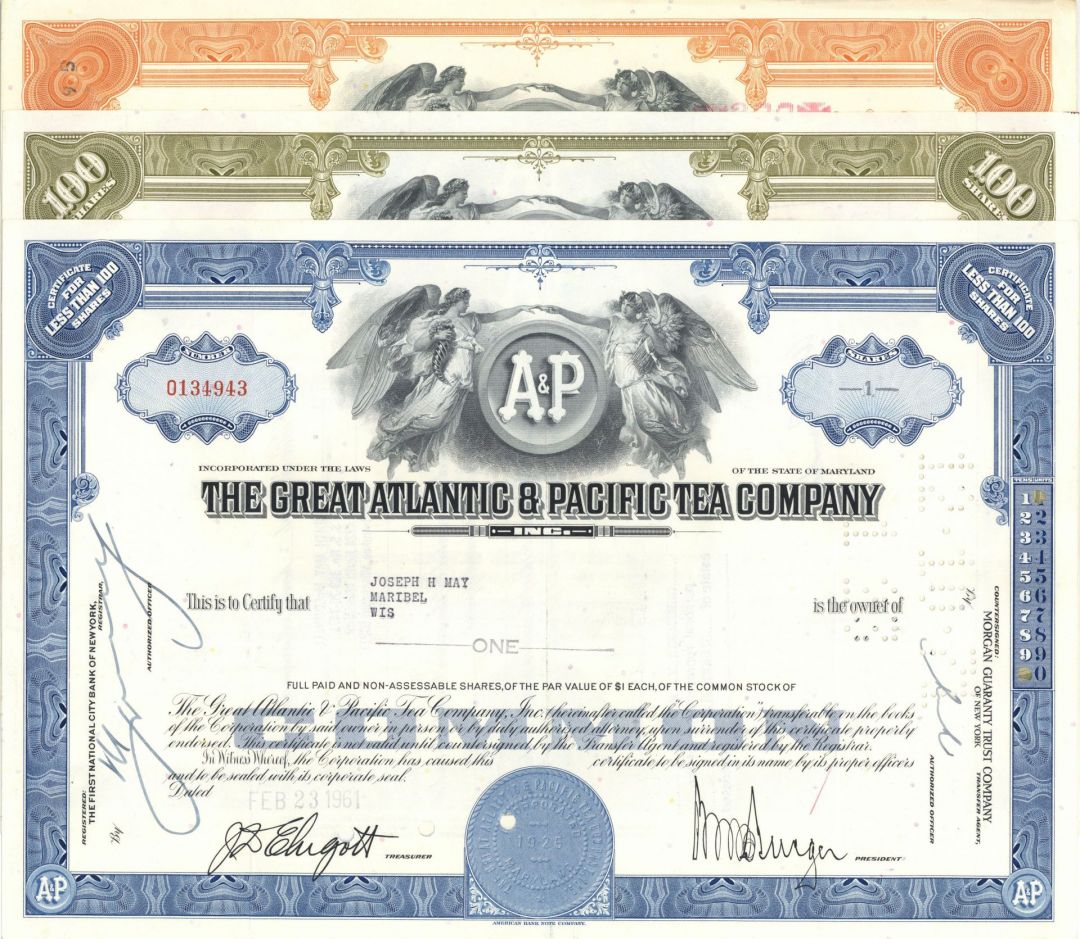Set of 3 Great Atlantic and Pacific Tea Co. - American Chain of Grocery Stores - 1960's-70's dated Three Stock Certificates
Inv# GS1413 StockSet of 3 different color stocks. Olive, Blue, and Orange. Engraved by American Bank Note Co. The Great Atlantic & Pacific Tea Company, better known as A&P, was an American chain of grocery stores that operated from 1859 to 2015. From 1915 through 1975, A&P was the largest grocery retailer in the United States (and, until 1965, the largest U.S. retailer of any kind).
A&P was considered an American icon that, according to The Wall Street Journal, "was as well known as McDonald's or Google is today", and was "the Walmart before Walmart". At its peak in the 1940s, A&P captured 10% of total US grocery spending. Known for innovation, A&P and the supermarkets that followed its lead improved nutritional habits by making available a vast assortment of food products at much lower costs. Until 1982, A&P also was a large food manufacturer. In his 1952 book, American Capitalism, John Kenneth Galbraith cited A&P's manufacturing strategy as a classic example of countervailing power that was a welcome alternative to state price controls.
Founded in 1859 by George Gilman as "Gilman & Company", within a few years the firm opened a small chain of retail tea and coffee stores in New York City, and operated a national mail order business. The firm grew to 70 stores by 1878, when Gilman passed management to George Huntington Hartford, who turned A&P into the country's first grocery chain. In 1900, it operated almost 200 stores. After Hartford acquired ownership, A&P grew dramatically by introducing the economy store concept in 1912, growing to 1,600 stores in 1915. After World War I, it added stores that offered meat and produce, while expanding manufacturing. Read more at https://en.wikipedia.org/wiki/A%26P
A stock certificate is issued by businesses, usually companies. A stock is part of the permanent finance of a business. Normally, they are never repaid, and the investor can recover his/her money only by selling to another investor. Most stocks, or also called shares, earn dividends, at the business's discretion, depending on how well it has traded. A stockholder or shareholder is a part-owner of the business that issued the stock certificates.










Ebay ID: labarre_galleries